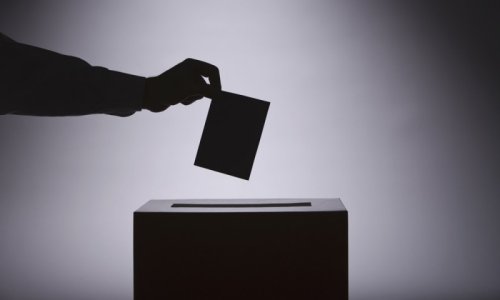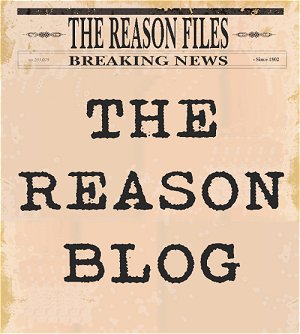Voting is not a question of “I don't like that person or their policies so I will vote for a different person.” It is a question of voting for the person whose policies you approve of and support. When you vote for someone, you are, in essence, saying the following:
1. I approve of their policies,
2. I agree with their policies,
3. I support their policies, and
4. I am granting my candidate, if they win, the right to speak on my behalf regarding foreign and domestic policies.
If you vote for a person who is pro-gun control, that means you support gun control. If you vote for a person who supports open immigration, that means you support open immigration. If you vote for a person who is pro-choice, that means you support their pro-choice policies, and if you vote for a person who supports the LGBT agenda, that means you support the LGBT agenda. When you vote for someone, that means you support their policies as they relate to the governing of the nation.
Voting the Lesser of Two Evils
This is more for Christians than anyone else, as it is Christians who are impacted the most when faced with this decision. Should Christian's vote the “lesser of two evils?” Before answering this, there are certain things that should be taken into consideration. Firstly, we have to understand that Jesus is not on the ballot, therefore, when we vote we will be voting for one sinner or another. When we vote, casting our vote for a sinner is something that cannot be helped. It is something that we are just going to have to deal with. Deciding which sinner to vote for is going to require some research in order to determine which one to cast our vote for, and it can be a challenge. We should take into consideration whether a candidate is, based on their words and actions, anti-God, anti-Christ, anti-Israel, and anti-Bible.
In other words, does he or she support or reject the Biblical moral values that God has established? Does he or she support the LGBT agenda? Does he or she support abortion? Does he or she support assisted suicide or euthanasia? Does he or she support corruption, inequality, discrimination, or the subversion of justice? As Christians we should vote for and support the candidate whose positions are most closely aligned with the word of God; otherwise, we are voting for and supporting someone who is actively against God, and Scripture has something to say about this.
The Apostle Paul urges us in 1 Thessalonians 5:22 to “abstain from every form of evil,” to eschew every kind of evil and not partake in it. This is not very different from the LORD's command in Exodus 23:2, “you shall not fall in with the many to do evil.” The reason for this is because God does not delight in evil! (Psalm 5:4). In fact, part of being a Christian, the primary essence of Christianity, is loving the Lord, which includes following His example and hating evil. Period. (Proverbs 8:13). There is no legitimate excuse for supporting or justifying evil of any kind, and doing so is an abomination to the Lord (Proverbs 17:15); and as the prophet Isaiah said, “Woe to those who call evil good and good evil” (Isaiah 5:20).
There are those, however, who argue that voting the lesser of two evils is necessary in order to prevent a greater evil. The problem with this argument is that voting for the lesser of two evils – especially when one considers that evil, as understood in this context, means anti-God, anti-Christ, anti-Israel and anti-Bible – is still voting for and supporting evil! There is no justification, no rationale, no logic that can change that. The only way to not vote for evil (again in the context of this article) is not simply not vote for evil. Again, voting for the lesser of two evils is still voting for evil. The idea of supporting the lesser evil in order that the greater good might prevail is soundly condemned in Scripture (Romans 3:8) and should be avoided by Christians. And, “whoever knows the right thing to do and fails to do it, for him it is sin.” (James 4:17).
If You Don't Vote, You Can't Complain
Recently, during a political conversation with a very good friend, the comment was made, “if you don't vote, can't complain” about the policies and actions of whomever is elected. I have heard this before and I have to say that I have never agreed with it. [Note: since the person with whom I was recently having this conversation will be reading this, I hope they will not take what I am about to write the wrong way. I have issue with the statement, not the person making it.]
The implications of this statement are serious. This statement implies that voting is somehow connected to the First Amendment, and by not voting a persons First Amendment rights are somehow nullified. In reality, however, nothing could be further from the truth. If a person chooses to abstain from voting they still retain the Constitutionally protected right to complain to their hearts content, not only about how the government it being run, but about any and every thing else as well.
Additionally (and I apologize for making this somewhat personal), like me, there are many who have served in the United States armed forces, and many of have served in Law Enforcement. Those who have done so have, in many cases, voluntarily offered to sacrifice their lives in order to not only protect this country and her citizens, but also to ensure the many freedoms this country enjoys; including the freedom to either vote or not vote, and to freely express one's opinions in the public square. If I choose not to vote (and to date I have every intention of voting), not only does the Constitution guarantee me the right to voice my opinions, but wearing both the uniform of the United States Navy and the uniform and badge of state law enforcement have earned me the right to voice my opinions regarding the policies and actions of my government.
Alternatives
At the end of the day, when it's all said and done, the hard truth that we must accept is that our personal decision to regarding who to vote for is not going to have any effect whatsoever on the identity of our next President. Presidents are not decided by popular vote, but by the Electoral College, and the electors who make up that body are not bound by any law, or any Constitutional amendment to vote the will of the people. They are completely free to vote for whomever they choose. But that does not mean our vote is useless. When we vote we are expressing how we want our government to be run. When we vote we are expressing our values and our morals. And, while others may not know who we vote for or why we voted for them (unless we tell them), we can be sure that we are not alone in that voting booth. The Lord is right there beside us, watching us and evaluating our decisions and the thoughts behind them.
As it currently stands, as of today, it looks like we will have at least four candidates to choose from on election day this upcoming November. In reality, however, we actually have far more to choose from. There are about 1,300 third party candidates to choose from this year, all seeking our votes.
So there are plenty of candidates to choose from, all it takes is a little time to do the research and determine which candidate supports the issues that you support. And, if a suitable candidate is not found, there is always the option of simply abstaining, refusing to waste your vote on a candidate who does not support the issues you care about.



 RSS Feed
RSS Feed
